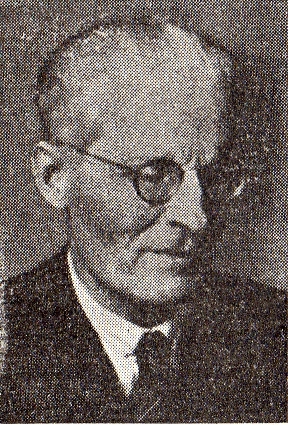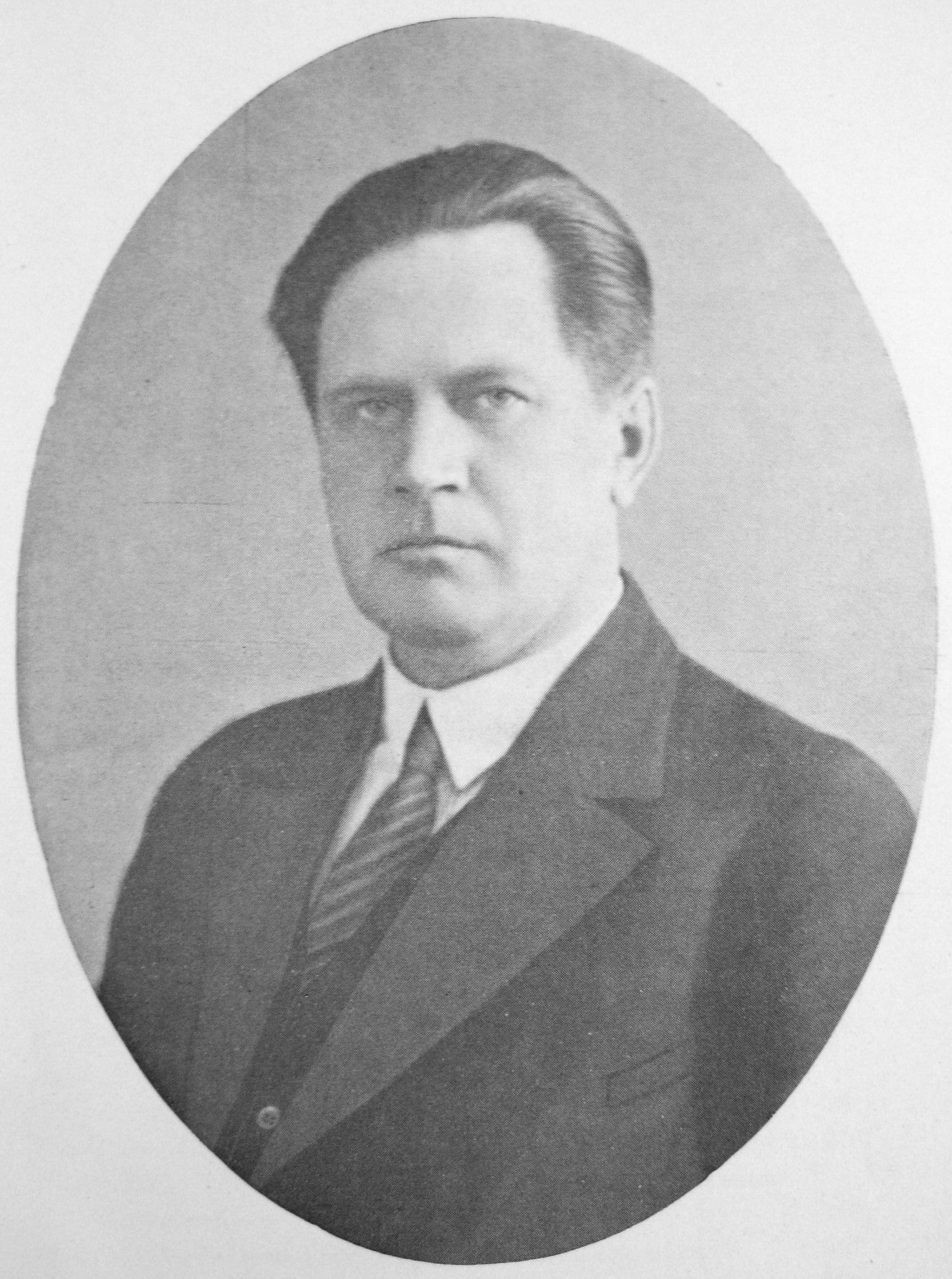|
J. J. Mikkola
Jooseppi Julius (J. J.) Mikkola (July 6, 1866, Ylöjärvi – September 28, 1946, Helsinki), was Finnish linguist and professor. Mikkola is regarded as one of the most important Finnish linguists of Slavic languages of his era. Biography Mikkola's parents were farmer Antti Erland Mikkola and Johanna Mikkola.http://www.helsinki.fi/keskusarkisto/virkamiehet_2/index.htm finnish infopage Mikkola graduated in 1886. In 1893 Mikkola married Finnish author Maila Talvio. Books * ''Berührungen zwischen den westfinnischen und slavischen Sprachen'', väitöskirja. Finsk-ugriska sällskapet, Helsingfors 1893–1895 * ''Betonung und Quantität in den westslavischen Sprachen''. W. Hagelstam, Helsingfors 1899 * ''Kansallinen liike Böömissä''. Kansanvalistusseura 1903 * ''Ladoga, Laatokka''. Finsk-ugriska sällskapet, Helsingfors 1906 * ''Urslavische Grammatik : Einführung in das vergleichende Studium der slavischen Sprachen, 1 Teil – Lautlehre, Vokalismus, Betonung''. Carl Winter's Uni ... [...More Info...] [...Related Items...] OR: [Wikipedia] [Google] [Baidu] |
Ylöjärvi
Ylöjärvi () is a town and a municipality in the Pirkanmaa region, northwest of Tampere and north of the capital city Helsinki in Finland. The town has a population of () and covers an area of of which is water. The population density is . Ylöjärvi is mostly a rural town. It does not have a clear center; the Tampere–Vaasa highway ( E12) and the Tampere–Seinäjoki railway divide the municipality's town center into two major distinct parts: the church village and Soppeenmäki. The railway, completed in 1971, has no passenger seats in the Ylöjärvi area, so buses handle all public transport. The population has increased rapidly in recent years. In 1990 it was slightly over 18,000, while on December 31, 2011 it was 30,942. The neighbouring municipalities are Hämeenkyrö, Ikaalinen, Kihniö, Nokia, Parkano, Ruovesi, Tampere and Virrat. The municipality of Viljakkala was consolidated with Ylöjärvi on January 1, 2007. The municipality of Kuru was consolidated with Ylöj ... [...More Info...] [...Related Items...] OR: [Wikipedia] [Google] [Baidu] |
Helsinki
Helsinki ( or ; ; sv, Helsingfors, ) is the Capital city, capital, primate city, primate, and List of cities and towns in Finland, most populous city of Finland. Located on the shore of the Gulf of Finland, it is the seat of the region of Uusimaa in southern Finland, and has a population of . The Helsinki urban area, city's urban area has a population of , making it by far the List of urban areas in Finland by population, most populous urban area in Finland as well as the country's most important center for politics, education, finance, culture, and research; while Tampere in the Pirkanmaa region, located to the north from Helsinki, is the second largest urban area in Finland. Helsinki is located north of Tallinn, Estonia, east of Stockholm, Sweden, and west of Saint Petersburg, Russia. It has History of Helsinki, close historical ties with these three cities. Together with the cities of Espoo, Vantaa, and Kauniainen (and surrounding commuter towns, including the eastern ... [...More Info...] [...Related Items...] OR: [Wikipedia] [Google] [Baidu] |
Finland
Finland ( fi, Suomi ; sv, Finland ), officially the Republic of Finland (; ), is a Nordic country in Northern Europe. It shares land borders with Sweden to the northwest, Norway to the north, and Russia to the east, with the Gulf of Bothnia to the west and the Gulf of Finland across Estonia to the south. Finland covers an area of with a population of 5.6 million. Helsinki is the capital and largest city, forming a larger metropolitan area with the neighbouring cities of Espoo, Kauniainen, and Vantaa. The vast majority of the population are ethnic Finns. Finnish, alongside Swedish, are the official languages. Swedish is the native language of 5.2% of the population. Finland's climate varies from humid continental in the south to the boreal in the north. The land cover is primarily a boreal forest biome, with more than 180,000 recorded lakes. Finland was first inhabited around 9000 BC after the Last Glacial Period. The Stone Age introduced several differ ... [...More Info...] [...Related Items...] OR: [Wikipedia] [Google] [Baidu] |
Linguist
Linguistics is the scientific study of human language. It is called a scientific study because it entails a comprehensive, systematic, objective, and precise analysis of all aspects of language, particularly its nature and structure. Linguistics is concerned with both the cognitive and social aspects of language. It is considered a scientific field as well as an academic discipline; it has been classified as a social science, natural science, cognitive science,Thagard, PaulCognitive Science, The Stanford Encyclopedia of Philosophy (Fall 2008 Edition), Edward N. Zalta (ed.). or part of the humanities. Traditional areas of linguistic analysis correspond to phenomena found in human linguistic systems, such as syntax (rules governing the structure of sentences); semantics (meaning); morphology (structure of words); phonetics (speech sounds and equivalent gestures in sign languages); phonology (the abstract sound system of a particular language); and pragmatics (how social contex ... [...More Info...] [...Related Items...] OR: [Wikipedia] [Google] [Baidu] |
Slavic Languages
The Slavic languages, also known as the Slavonic languages, are Indo-European languages spoken primarily by the Slavic peoples and their descendants. They are thought to descend from a proto-language called Proto-Slavic, spoken during the Early Middle Ages, which in turn is thought to have descended from the earlier Proto-Balto-Slavic language, linking the Slavic languages to the Baltic languages in a Balto-Slavic group within the Indo-European family. The Slavic languages are conventionally (that is, also on the basis of extralinguistic features) divided into three subgroups: East, South, and West, which together constitute more than 20 languages. Of these, 10 have at least one million speakers and official status as the national languages of the countries in which they are predominantly spoken: Russian, Belarusian and Ukrainian (of the East group), Polish, Czech and Slovak (of the West group) and Bulgarian and Macedonian (eastern dialects of the South group), and Serbo-C ... [...More Info...] [...Related Items...] OR: [Wikipedia] [Google] [Baidu] |
Maila Talvio
Maila Talvio née Winter, married Mikkola (October 17, 1871, Hartola – January 6, 1951, Helsinki), was a Finnish writer. Talvio was a leading Finnish writer on the temperance question and several of her works were translated into Swedish and other languages. She was nominated for the Nobel Prize in Literature three times. Life Her parents were Adolf Magnus Winter and Julia Malvina Bonsdorf, who had a family of 9 children. Talvio's father died when Maila was 9 years old. Her husband was J. J. Mikkola, a renowned scholar of Slavic linguistics Linguistics is the science, scientific study of human language. It is called a scientific study because it entails a comprehensive, systematic, objective, and precise analysis of all aspects of language, particularly its nature and structure ..., whom she married in 1893. She is buried in Hietaniemi Cemetery in Helsinki. Books Awards * Valtion kirjallisuuspalkinto (1936) * Aleksis Kiven kirjallisuuspalkinto (1940) Notes ... [...More Info...] [...Related Items...] OR: [Wikipedia] [Google] [Baidu] |
Aarno Maliniemi
Aarno Henrik Maliniemi (surname until 1930 ''Malin''; 9 May 1892 – 8 October 1972) was a Finnish historian, professor in church history at Helsinki University 1945–1960. Maliniemi was an expert on the medieval church. He studied early Finnish literature, and was editor of a number of publications and bibliographies. Maliniemi was born in Oulu. He was awarded a ''doctor honoris causa'' by University of Uppsala in 1952 and by University of St Andrews in 1960. Otavan Iso tietosanakirja (Encyclopaedia Fennica) 5, page 1278; Helsinki: Otava, 1968 He died in Helsinki Helsinki ( or ; ; sv, Helsingfors, ) is the capital, primate, and most populous city of Finland. Located on the shore of the Gulf of Finland, it is the seat of the region of Uusimaa in southern Finland, and has a population of . The city ..., aged 80. Bibliography * ''Der Heiligenkalender Finnlands'' (1925) * ''Studier i Vadstena klosters bibliotek'' (1926) * ''S.G. Elmgrenin muistiinpanot'' (193 ... [...More Info...] [...Related Items...] OR: [Wikipedia] [Google] [Baidu] |
Finnish Diplomats
Finnish may refer to: * Something or someone from, or related to Finland * Culture of Finland * Finnish people or Finns, the primary ethnic group in Finland * Finnish language, the national language of the Finnish people * Finnish cuisine See also * Finish (other) * Finland (other) * Suomi (other) Suomi means ''Finland'' in Finnish. It may also refer to: *Finnish language * Suomi (surname) * Suomi, Minnesota, an unincorporated community * Suomi College, in Hancock, Michigan, now referred to as Finlandia University * Suomi Island, Western ... * {{disambiguation Language and nationality disambiguation pages ... [...More Info...] [...Related Items...] OR: [Wikipedia] [Google] [Baidu] |
Academic Staff Of The University Of Helsinki
An academy (Attic Greek: Ἀκαδήμεια; Koine Greek Ἀκαδημία) is an institution of secondary or tertiary higher learning (and generally also research or honorary membership). The name traces back to Plato's school of philosophy, founded approximately 385 BC at Akademia, a sanctuary of Athena, the goddess of wisdom and skill, north of Athens, Greece. Etymology The word comes from the ''Academy'' in ancient Greece, which derives from the Athenian hero, ''Akademos''. Outside the city walls of Athens, the gymnasium was made famous by Plato as a center of learning. The sacred space, dedicated to the goddess of wisdom, Athena, had formerly been an olive grove, hence the expression "the groves of Academe". In these gardens, the philosopher Plato conversed with followers. Plato developed his sessions into a method of teaching philosophy and in 387 BC, established what is known today as the Old Academy. By extension, ''academia'' has come to mean the accumulation, dev ... [...More Info...] [...Related Items...] OR: [Wikipedia] [Google] [Baidu] |
1866 Births
Events January–March * January 1 ** Fisk University, a historically black university, is established in Nashville, Tennessee. ** The last issue of the abolitionist magazine '' The Liberator'' is published. * January 6 – Ottoman troops clash with supporters of Maronite leader Youssef Bey Karam, at St. Doumit in Lebanon; the Ottomans are defeated. * January 12 ** The ''Royal Aeronautical Society'' is formed as ''The Aeronautical Society of Great Britain'' in London, the world's oldest such society. ** British auxiliary steamer sinks in a storm in the Bay of Biscay, on passage from the Thames to Australia, with the loss of 244 people, and only 19 survivors. * January 18 – Wesley College, Melbourne, is established. * January 26 – Volcanic eruption in the Santorini caldera begins. * February 7 – Battle of Abtao: A Spanish naval squadron fights a combined Peruvian-Chilean fleet, at the island of Abtao, in the Chiloé Archipelago of southern Chile. * February 13 � ... [...More Info...] [...Related Items...] OR: [Wikipedia] [Google] [Baidu] |
1946 Deaths
Events January * January 6 - The first general election ever in Vietnam is held. * January 7 – The Allies recognize the Austrian republic with its 1937 borders, and divide the country into four occupation zones. * January 10 ** The first meeting of the United Nations is held, at Methodist Central Hall Westminster in London. ** ''Project Diana'' bounces radar waves off the Moon, measuring the exact distance between the Earth and the Moon, and proves that communication is possible between Earth and outer space, effectively opening the Space Age. * January 11 - Enver Hoxha declares the People's Republic of Albania, with himself as prime minister. * January 16 – Charles de Gaulle resigns as head of the French provisional government. * January 17 - The United Nations Security Council holds its first session, at Church House, Westminster in London. * January 19 ** The Bell XS-1 is test flown for the first time (unpowered), with Bell's chief test pilot Jack Woolams at t ... [...More Info...] [...Related Items...] OR: [Wikipedia] [Google] [Baidu] |



